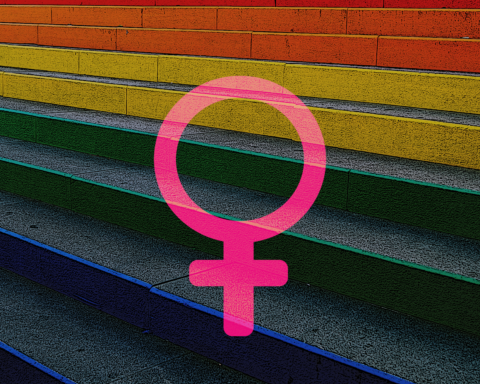A Concluding Editorial
The practice of the General Editor and Managing Editor each doing an editorial for most issues goes back to when Patrick Heery was the Managing Editor. It was a way to highlight the generational differences on some topics. In this case, the gender difference may also be worth noting.

Yes, it’s a play on the word, ‘just’. Justice can be a big word, an achieved state or total fairness, and justice for women is not yet that. “Just” is just an adjective, a characteristic of doing right. It is in fact the basic Christian ethical approach, which sees Christ in the suffering neighbor, and hears God’s voice in the NO that rises up in us in the presence of abuse. Even when we try to put up with the lack of justice in our imperfect world, that awareness of brokenness is the starting point. So reading the essays in this gender justice issue of Unbound, which took the theme of hearing silenced voices, makes me think about the way God’s voice is in women’s voices of hurt and anger. It will also be in Rachel’s voice crying lamentation at the death of innocent children right after the joy of Christmas.
Looking over the several weeks of articles, the movement of this issue of Unbound has been to recognize the inequality and added vulnerability of women to unjust conditions. Quickly contributors we contacted reflected back to thinking about “re-imagining,” the theological desire for transformation, the desire not simply to equalize but to expand possibilities, not simply to redress grievances but to restructure the game board. When Ginna and I looked at that energy early on, we knew we probably needed another issue, not one of re-prints, but of re-thinking and re-living.
___________________________________________
I recently had dinner with a friend who wondered whether the younger generation of women in ministry was less concerned to fight for justice if they felt they had an easier time becoming ordained and employed. The answer of the articles in this issue is a resounding no.
___________________________________________
Yet we also saw that we needed to start by facing some of the evidence of tragedy and lives thwarted, even in ‘First World’ and church settings, to get the challenges and questions out. Getting justice for the suffering had to be the starting point, especially when some of the injustice to women is still denied. The theological dialogue about “re-imagining” has, in fact, continued since 1994, mainly in the seminaries and among women ministers. We hope to return to it in a way that empowers ministry and helps the church be more whole.
 I recently had dinner with one of the leaders of the church, a woman who has written several books, led a couple congregations of size, and with her husband raised adult children active in the church. She wondered whether the younger generation of women in ministry was less concerned to fight for justice if they felt they had an easier time becoming ordained and employed.
I recently had dinner with one of the leaders of the church, a woman who has written several books, led a couple congregations of size, and with her husband raised adult children active in the church. She wondered whether the younger generation of women in ministry was less concerned to fight for justice if they felt they had an easier time becoming ordained and employed.
The answer of the articles in this issue is a resounding no. Marci Auld Glass speaks with power against emotional pain and for freedom of conscience in the ability to have children. Family planning is a linchpin of women’s equality, and she provides a unique personal testimony to that. The Daughters of Eve, vagina-monologue reading of scripture with a frank contemporary lens may have aroused some discomfort in readers, but that was in part what it was designed to do – to change our angle of hearing familiar texts and to pay some attention to texts often left in silence. Kevin Frederick’s “Men in the Mirror” curriculum and article took the need for new embodiment rather than power in relationship in a different direction – pointing to how mutuality between the genders is a key to freedom.
___________________________________________
Getting justice for the suffering had to be the starting point, especially when some of the injustice to women is still denied.
___________________________________________
Barbara Kellam-Scott wrote a fine midrash on the Great Woman of Shunem (2 Kings 4 and 8) in relation to the work of Carol Meyers and to the situation of Palestinian women displaced and denied homeland, a situation to which Nahida Halaby Gordon’s story gives flesh and bones. Darcy Metcalfe Mudd reminds a Church seeking creative new ways of doing evangelism that perhaps the age-old Gospel message of love, liberation, and dignity for all people is our best strategy for reaching a post-church world.
 The feminist deal and ideal contains freedom to speak and to live freely the unlived lives of women ancestors as well as women neighbors who suffer. We don’t have full justice for women yet, or equality, but women continue to claim the freedom to speak, and that freedom cannot be measured. That free-speaking should not be used to distort either the texts or the truths of others, but rather to un-distort our perceptions and prejudices. The image of Sophia presents the wisdom to do that from a feminine source.
The feminist deal and ideal contains freedom to speak and to live freely the unlived lives of women ancestors as well as women neighbors who suffer. We don’t have full justice for women yet, or equality, but women continue to claim the freedom to speak, and that freedom cannot be measured. That free-speaking should not be used to distort either the texts or the truths of others, but rather to un-distort our perceptions and prejudices. The image of Sophia presents the wisdom to do that from a feminine source.
Perhaps this listening wisdom comes out in Emma Nickel’s article, which is also a counterpart to Marci Glass’ story. The costs of culture and calling on family life — the sacrifices made by many — deserve pastoral and strategic analysis when both the birthrate and the onset of puberty have declined for 6 years and counting. Nickel takes us to healing worship when she writes: “To hear yourself named in prayer, even anonymously, is to know that your church and your God understand and validate you.”
The moral bottom line of addressing violence and injustice to women and girls comes out in the heartfelt prayers of Jennifer Pelling, as she pleads for the schoolgirls kidnapped in Nigeria long months ago. Janet Guyer looks unflinchingly at the brutality that persists in the practice of child marriage (often in subsistence cultures), while Leslie Woods reminds readers that economic discrimination and deprivation constitute oppression for women even in the United States. The interview with New Haven organizers of Mothers for Justice complements Woods’ article well, perhaps embodying something of the solution to the problem Woods names.
___________________________________________
We don’t have full justice for women yet, or equality, but women continue to claim the freedom to speak, and that freedom cannot be measured.
___________________________________________
 Violence, culture, and relations between the genders are examined in Rachel Mastin’s review of Marcia Mount Shoop’s fine Touchdowns for Jesus. We are very pleased to have Dr. Mount Shoop’s gracious and revelatory response to that review, and I note also her very powerful first book, Let the Bones Dance. Mount Shoop’s analysis of the costs and cultural influence of sports violence brought to mind this past General Assembly’s statement, Sexual Violence in the US Military. Can we compare the team mentality to the pack mentality that sometimes brutalizes a comrade or sister soldier? Do either of these worlds of forceful struggle — for entertainment or for military control — have implications for the past abuse and torture of (mainly male) prisoners in CIA and military prisons reported on this December of 2014? Long ago, Susan Brownmiller wrote on the continuities she saw in Against Our Will (1975). And as we’ve been reminded recently, even university campuses are not immune from sexual violence.
Violence, culture, and relations between the genders are examined in Rachel Mastin’s review of Marcia Mount Shoop’s fine Touchdowns for Jesus. We are very pleased to have Dr. Mount Shoop’s gracious and revelatory response to that review, and I note also her very powerful first book, Let the Bones Dance. Mount Shoop’s analysis of the costs and cultural influence of sports violence brought to mind this past General Assembly’s statement, Sexual Violence in the US Military. Can we compare the team mentality to the pack mentality that sometimes brutalizes a comrade or sister soldier? Do either of these worlds of forceful struggle — for entertainment or for military control — have implications for the past abuse and torture of (mainly male) prisoners in CIA and military prisons reported on this December of 2014? Long ago, Susan Brownmiller wrote on the continuities she saw in Against Our Will (1975). And as we’ve been reminded recently, even university campuses are not immune from sexual violence.
“Gender asymmetry” is one of the academic ways to speak not of physical differences but of differences in expectation and experience, and there are perhaps more variations on gender difference than before. Just freedom lets voices be heard, sometimes unimagined voices, and voices that call for the hard but necessary work of being prophetic and practical. Why do the inequality and injustice persist? And who is the God who still calls us to resist?
For now we feel we have reopened a discussion in at least one church of women’s theological perspectives, starting with issues of justice and experience suppressed. May that discussion continue.
*****
Read more articles from this issue, “Hearing the Voices of Peoples Long Silenced”: Gender Justice 2014!





Unbound Social